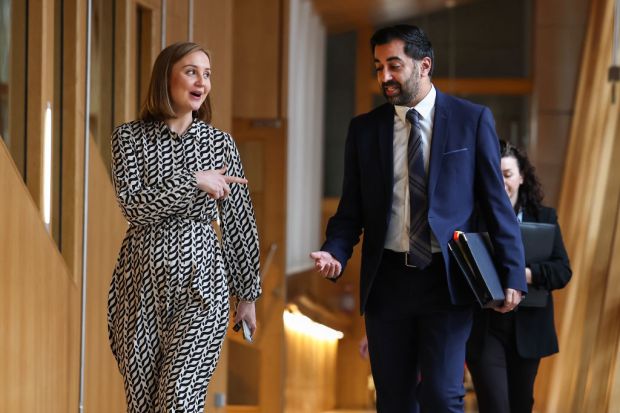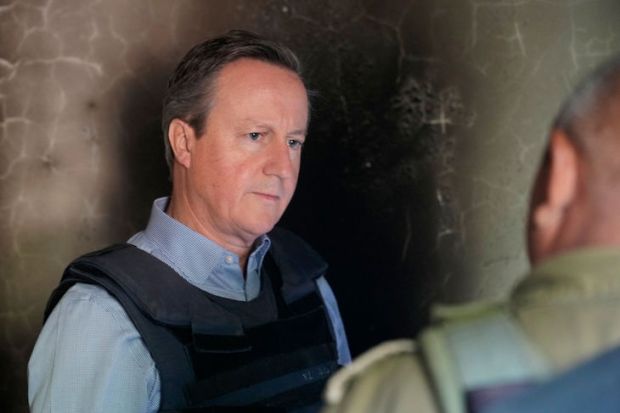The green agenda is leading the news today with Boris Johnson on a PR mission to sell his environmental plans to the country (and sceptical Tory MPs) ahead of next month’s Cop26 summit. Several documents are published today, including the much-delayed Heat and Building strategy, the Net Zero strategy and the Net Zero review which is meant to offer some idea of how much exactly the whole agenda will cost.
Those braced for eye-watering figures and stark consumer choices however may need to reassess. With Downing Street concerned about turning voters off the green agenda, there has been an effort to paint the environmental push as a gradual transition rather than something that could drastically impact household finances. This was on full display in a Boris Johnson interview in the Sun newspaper today in which he said, ‘while we’re going to have to make some pretty major changes to the way we heat our homes, the Greenshirts of the Boiler Police are not going to kick in your door with their sandal-clad feet and seize, at carrot-point, your trusty old combi.’
But what of the actual substance? One of the key steps for the UK to achieve its Net Zero targets is changing how people heat their homes – moving them from gas boilers to more environmentally friendly heat pumps. The plan is to ease out gas boilers by 2035 – though notably this is an ambition rather than a hard target.
To ease the transition from boilers to comparatively expensive heat pumps, the plan, as announced today, is to offer homeowners in England and Wales £5,000 subsidies to install pumps when they need to replace their boilers through the ‘boiler upgrade scheme’.
But while this may sound generous, heat pumps vary in cost. Depending on the size of your home and other factors their price can range from £6,000 to over £15,000. And Friends of the Earth analysis suggests the current pot of money will only fund contributions to 90,000 new heat pumps which ‘isn’t very much, and won’t meet the prime minister’s ambition of 600,000 a year by 2028.’ In terms of the other key planks of the green agenda, the government will pledge to approve at least one nuclear plant by 2024 as part of its efforts to move away from an over reliance on non-renewable energy.
What is clear from the announcements is that the government is banking on technology and industry coming to the rescue – and that the price of heat pumps and electric cars will decline sharply in the coming years. But the belief that a cheaper option is on the horizon could well put people off making the jump now if their boiler breaks.
It’s also the case that no one will put a price on how much going Net Zero will cost generally. The Treasury analysis that forms the Net Zero review – released today – doesn’t put an overall price on the target. The document is reported to have been toned down in redrafts after an initial version focused on the cost burden. But it does still warn that tax rises could be required to balance out the ‘erosion of tax revenue from fossil-fuel related activity’.
It’s not just a voter backlash the government is worried about, it’s also Johnson’s own MPs. Steve Baker has set up the Net Zero Scrutiny Group to ask questions of the government’s projected costs. Meanwhile there are tensions between No. 10 and No. 11 over the true cost of the plans. The last figure given was in 2019 when the then-Chancellor Philip Hammond warned Theresa May that her plan to reduce greenhouse gas emissions to Net Zero by 2050 would cost the UK over £1 trillion.
That’s why no one should expect to be given an overall cost of Net Zero by the government anytime soon. Instead, the government strategy appears to take a few steps now and then hope for the best. Technological advancements mean that it’s hard to put an accurate figure on Net Zero. But even if the government had a figure, it’s not clear they would want to tell you.
Got something to add? Join the discussion and comment below.
Get 10 issues for just $10
Subscribe to The Spectator Australia today for the next 10 magazine issues, plus full online access, for just $10.




















Comments
Don't miss out
Join the conversation with other Spectator Australia readers. Subscribe to leave a comment.
SUBSCRIBEAlready a subscriber? Log in